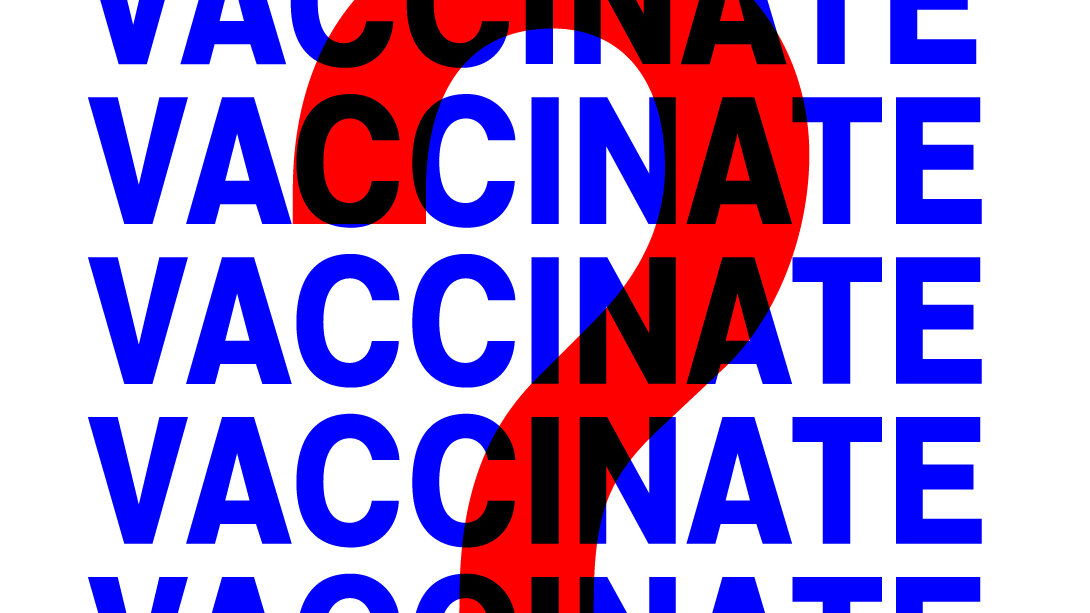
President Biden today called for governors to open coronavirus vaccinations to all adults within the next two weeks, speeding up a target he had previously set for May 1.
But recent polls and political tides, particularly in red states, suggest that if the country is to reach herd immunity, simply making the vaccine available may not be enough. A sizable minority of skeptics remain wary of being vaccinated, polls suggest, with questions about the vaccine’s safety lying at the heart of their doubt.
Dr. Anthony Fauci, the nation’s top infectious disease expert, has said the country shouldn’t expect to reach herd immunity — whereby a disease effectively stops traveling freely between infected people — until at least 75 percent of Americans are vaccinated.
Some states and businesses are starting to treat proof of vaccination as a kind of passport. Many cruise ships, for instance, are requiring proof of vaccination for passengers, and Gov. Andrew Cuomo of New York last month announced the creation of Excelsior Pass, a way for state residents to easily show proof of vaccination using a smartphone. Proof of a shot is now required for entry into some large venues under New York’s current reopening guidelines.
But the political picture is different elsewhere. Yesterday, Greg Abbott of Texas became the second Republican governor, after Ron DeSantis of Florida, to sign an executive order preventing companies from requiring their employees to be vaccinated.
Fauci made it clear yesterday that he and the Biden administration were likely to stay out of it. “I doubt that the federal government will be the main mover of a vaccine passport concept,” he told the “Politico Dispatch” podcast. “They may be involved in making sure things are done fairly and equitably, but I doubt if the federal government is going to be the leading element of that.”
But without a nudge, polls suggest that it could take a while to get the full country vaccinated.
Nearly half of American adults reported that they gotten at least one dose of the vaccine, according to an Axios/Ipsos poll released today, but there is reason to believe that the rise in vaccinations may taper off soon. Among those who had not gotten a shot, people were more likely to say they would wait a year or longer (25 percent) than to say they’d get the vaccine within a few weeks of it being available (19 percent). Thirty-one percent of Republicans said they were not at all likely to get the shot. Partly driving that is deep-seated wariness among white evangelical Christians, a core part of the Republican base, whom polls have shown to be among the most vaccine-averse populations.
A separate poll released today by the Kaiser Family Foundation and The Washington Post revealed that more than one-third of the country has little confidence that the Covid-19 vaccines have been “properly tested for safety and effectiveness.” Health care workers tracked evenly with the rest of the population in terms of vaccine skepticism: Thirty-six percent of them were not confident.
When it comes to confidence, there’s no stronger measure than whether you’d give something to your child. Fauci has made clear that herd immunity won’t be possible without widespread vaccinations for young people, so any target for the country must include them as well. But nearly half of all parents polled by Axios/Ipsos said they probably wouldn’t be first in line to get their children a vaccine when it became available.
Fifty-two percent of respondents with a child under 18 in the home said they would probably take advantage of the vaccine as soon as their kid’s age group was eligible, but 48 percent said they wouldn’t.
Latest Updates
- India records over 100,000 new cases in one day for the first time.
- A biotech company says changes are coming after vaccine mix-up at its Baltimore plant.
- The once-battered Navajo Nation has gained control of the virus, for now.
But even as some vaccine skepticism lingers, Americans are reporting convening in far higher numbers. Fifty-five percent of the country said they had been in the company of family or friends in the past week, more than at any point in the past year. Forty-five percent said they had recently gone out to eat.
Thirty-six percent said they hadn’t been practicing social distancing at all over the past week.
New York Times Podcasts
The Ezra Klein Show: Did the boomers ruin America?
On today’s episode, Ezra spoke with the conservative writer Helen Andrews and the liberal journalist Jill Filipovic about why millennials are so mad at their parents’ generation.
Filipovic and Andrews, both of whom are millennials (as is Ezra), agree that the boomers left their generation worse off; but they disagree on just about everything else. They discussed the value of generational analysis, the legacy of the sexual revolution, the impact of boomer economic policies, the decline of the nuclear family, the so-called millennial sex recession, the millennial affordability crisis, the impact of pornography, how much the critique of the boomers is really a critique of technological change and much more.
You can listen here, and read the transcript here.






